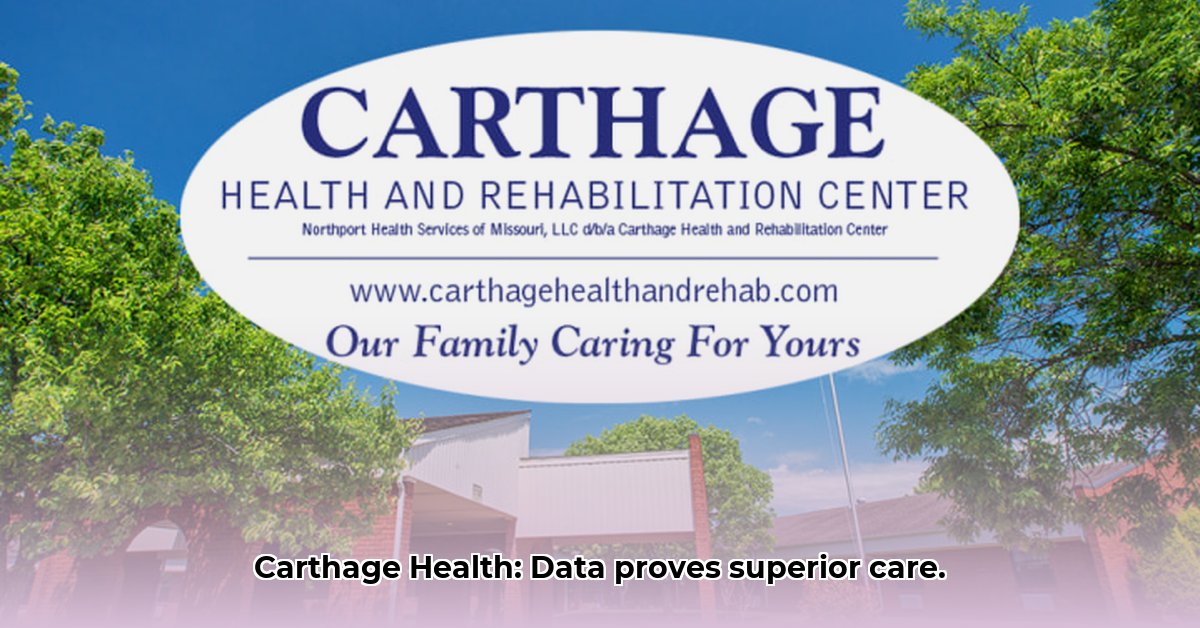
Understanding Carthage Health & Rehab's Approach
Carthage Health and Rehabilitation Center aims to provide superior long-term care, emphasizing a comfortable, home-like environment coupled with expert medical attention. Their stated philosophy centers on personalized care plans tailored to individual resident needs and fostering a sense of community and belonging through planned activities and social interaction. While these goals align with best practices in senior care, a comprehensive evaluation requires objective data beyond stated intentions.
Services and Amenities: A Closer Look
Carthage offers a range of services, including physical, occupational, and speech therapies, along with recreational activities and personalized care plans. Amenities such as comfortable living spaces, laundry services, cable TV, and Wi-Fi contribute to a pleasant environment. However, the presence of these amenities alone does not guarantee superior care. The critical question remains: Do these features translate into measurable improvements in resident health and well-being? This requires objective data analysis.
Analyzing Carthage's Claims: Evidence and Gaps
Carthage's marketing materials emphasize dedicated and compassionate staff. While crucial for quality care, this lacks the quantifiable data necessary to substantiate claims of superiority. Terms like "superior" and "premier" demand supporting evidence. What are the facility's readmission rates to hospitals post-discharge? How do their fall incident rates compare to industry benchmarks? What proactive measures are in place to prevent falls? Without these data points, it is impossible to objectively assess their effectiveness against comparable facilities.
Critical Data Gaps and Needed Research
To provide a thorough assessment of Carthage's performance, several key data points are missing:
Resident Satisfaction Scores: Independently conducted surveys measuring resident and family satisfaction are crucial. This could involve questionnaires, interviews, or focus groups.
Clinical Outcome Metrics: Tracking indicators like medication errors, infection rates, pressure sore incidence, and overall health improvements offers objective measures of care quality.
Staffing Ratios: Knowing the nurse-to-resident ratio provides insight into the level of personalized attention each resident receives.
Average Length of Stay: A shorter average stay might indicate successful rehabilitation, while a longer stay could point to challenges in achieving desired outcomes.
The absence of this data hinders a comprehensive evaluation of Carthage's effectiveness compared to industry standards.
Regulatory Compliance and Risk Assessment
Carthage operates within a complex regulatory environment. Compliance with federal and state guidelines regarding staffing, medication management, infection prevention, and resident rights is paramount. Non-compliance can lead to significant penalties and reputational damage. Proactive risk management is essential.
Best Practices and Recommendations for Improvement
To enhance quality of care and demonstrate data-driven results, Carthage should:
Implement Evidence-Based Practices: Adopt standardized care protocols based on industry best practices.
Invest in Ongoing Staff Training: Continuous professional development ensures staff are equipped to provide optimal care.
Conduct Regular Resident and Family Surveys: Regular feedback collection provides valuable insights for improvement.
Establish Key Performance Indicators (KPIs): Tracking and analyzing key metrics enables data-driven decision-making and continuous quality improvement.
Transparent Reporting: Publicly sharing relevant KPIs (where appropriate and permitted) demonstrates a commitment to transparency and accountability.
Conclusion: The Need for Data-Driven Evaluation
Carthage Health and Rehabilitation Center shows promise. Their commitment to a supportive environment is evident. However, without robust data collection and analysis, claims of "superior care" remain unsubstantiated. A commitment to data-driven practices and transparent reporting is crucial for Carthage to demonstrate their effectiveness and achieve their stated goals of superior care and data-driven results. Further investigation and data collection are necessary for a complete and objective evaluation.